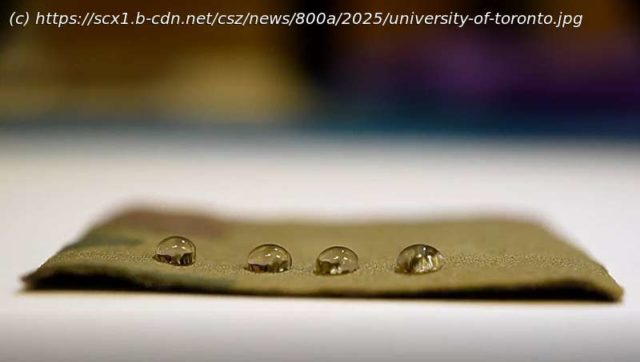A new material developed by researchers from University of Toronto Engineering could offer a safer alternative to the nonstick chemicals commonly used in cookware and other applications.
A new material developed by researchers from University of Toronto Engineering could offer a safer alternative to the nonstick chemicals commonly used in cookware and other applications.
The new substance repels both water and grease about as well as standard nonstick coatings—but it contains much lower amounts of per- and polyfluoroalkyl substances (PFAS), a family of chemicals that have raised environmental and health concerns.
„The research community has been trying to develop safer alternatives to PFAS for a long time“, says Professor Kevin Golovin, who heads the Durable Repellent Engineered Advanced Materials (DREAM) Laboratory at U of T Engineering.
„The challenge is that while it’s easy to create a substance that will repel water, it’s hard to make one that will also repel oil and grease to the same degree. Scientists had hit an upper limit to the performance of these alternative materials.“
Since its invention in the late 1930s, Teflon—also known as polytetrafluoroethylene or PTFE—has become famous for its ability to repel water, oil and grease alike. Teflon is part of a larger family of substances known as per- and polyfluoroalkyl substances (PFAS).
PFAS molecules are made of chains of carbon atoms, each of which is bonded to several fluorine atoms. The inertness of carbon-fluorine bonds is responsible for the nonstick properties of PFAS.
However, this chemical inertness also causes PFAS to resist the normal processes that would break down other organic molecules over time.
Start
United States
USA — IT Researchers create safer nonstick surface, cutting use of 'forever chemicals'






